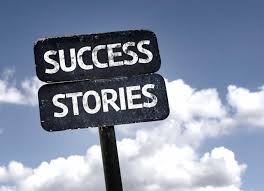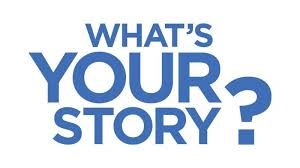Interview success – Can you tell a story?

Can you remember a time when you were listening to someone speak and somehow, they engaged you? To this day you can remember most of what they said or at least the message they were trying to convey?
It’s more likely than not the person told a story, they made you feel something and that’s why you remember.
Recent neurological research on the way we process information through stories has proven what the most effective leaders and communicators have known since the Stone Age: that storytelling in a powerful and effective way to infuse ideas into the hearts and minds of others for lasting impact.
We also know that when you hear a story, more zones of the brain are activated including your emotions and your other senses.

Stories at Work
Let’s face it, at work, most messages we receive are usually only a collection of facts and figures. These facts and figures will only activate the language processing zone of your brain, no emotions are activated.
In the business world, storytelling has become an increasingly used communications tool; it can make complex data accessible, cultivate relationships with products and people, rally teams around a strategy and fuel compelling narratives that shape organizational culture.
If you can achieve these things at work through telling stories, then you will enhance your career.
Daily in my work in recruitment it is very evident the importance of good work stories. Today’s successful interviews rely on a job seekers ability to answer questions with compelling stories.
Employers are more often using competency-based interviews. Behavioural questions are asked to understand how you have acted in real situations in the past.
So, have your stories ready, the ones that speak to the heart as well as the mind.

The STAR method story
For those of us who aren’t natural story tellers we can use the STAR method to create our interview stories.
This method enables listeners to remember more of your answers, and the messages within them, yet your message will be delivered in a friendly likeable style.
Your interview success ratio will sky rocket.
The STAR method is
S – Situation, background set the scene
T – Task or Target, specifics of what’s required, when, where, who
A – Action, what you did, skills used, behaviours, characteristics
R – Result – Outcome, what happened?
Your STAR story should be no longer than 2 minutes, must be delivered with enthusiasm and energy about a real experience you have had.
Here’s an example..
Question – “Can you give an example of a time you unexpectedly had to take up a leadership role.
Answer –
(Situation) “Yes; a relevant example being at my last company, where I was initially a software developer, in a team of 6 developing a new finance module for our core accounting product.”
(Task) “The project was critical as launch dates had been set with a lot of sales and marketing investment riding on the product being ready. However, the project was behind schedule, when our team leader unfortunately became ill, and had to leave.”
(Action) “I had been sports team captain previously, where I loved the challenge and responsibility of leadership. So, I volunteered to stand in, and by using my technical analysis skills, spotted a few small mistakes made in the initial coding, that were causing the sporadic errors, and slowing us down. I then negotiated with our product director a small bonus incentive for the team, and budget for two pizza evenings, so we could pull a couple of late night shifts to correct the coding and catch up with the critical project landmarks.”
(Result) “Though this took us 1.5% over budget the software was delivered on time with a better than target fault tolerance. The project was seen as a great success as the additional project cost was minimal compared to the costs of delaying the launch, and the negative affect on our product branding. The team where delighted with the extra bonus and I have now been officially promoted to team leader as a result.”
Practice makes perfect
Practicing your stories out loud is essential. Letting other people hear them before an interview is the best preparation.
If you can’t convince your friends to listen or you need help to craft and prepare for your interview stories there are people who can help. For example, www.interview.co.nz.
